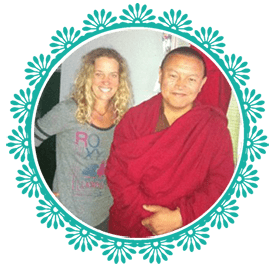Catherine Smith, Licensed Clinical Social Worker
Community. Service. Meditation. Creativity.
Supporting Hawaii since 2007
I feel blessed to be able to call Hawaii home since 2007. I hold a deep reverence for the culture and strive to make a positive contribution to this community. Whether you are hoping to ease emotional stress, process past memories, or develop more positive communication and problem solving skills, my approach integrates a variety of evidence-based modalities.

I am currently offering Telehealth video sessions in New York and throughout Hawaii.
My roots in community service
While I have been in private practice since 2011, my path to this work began far earlier. I graduated Magna Cum Laude from the University of South Carolina with a Bachelor of Arts in Psychology. I hold a Master’s in Social Work from Tulane University in New Orleans and am a Licensed Clinical Social Worker (LCSW) in both Hawaii and New York. Currently, I am pursuing a PhD in Depth Psychology with an emphasis in Integrative Therapies and Healing Practices at Pacifica Graduate Institute.
How hurricane Katrina changed my life
In 2005, while I was attending Tulane University and working on my Master’s thesis with the Tibetan refugee community in Dharamshala, India, the arrival of Hurricane Katrina brought the loss of my home and belongings as well as new clarity in my life work. This was the first time I had ever experienced real personal loss, and I was awed by the genuine concern and compassion shown by the Tibetan community despite the severity of their own circumstances. It was this demonstration of warmth, selflessness and loving kindness that impacted me most.…and it was contagious.
The teachings of Tibet

Still learning
I continue to engage in personal retreats studying meditation techniques that make this perspective of compassion and loving kindness possible. Additionally, I take part in professional training and conferences as new treatment approaches emerge. As a result, my skill set as a therapist is always growing to help me best meet the needs of my clients.
Depth Psychology
When I started the PhD program at Pacifica, I also adopted my dog—Daisy Bear. The heart-opening joy that she has brought into my life has been positively unimaginable. The process of training Daisy and the range of unexpected emotional benefits I’ve experienced because of this relationship have inspired me to focus my dissertation on better understanding the human-canine bond.


My research is specifically focused on the human-canine bond in the context of prison dog training programs (PDPs). Across the country prisons are implementing programs in which incarcerated people live with and train dogs for a variety of service-oriented tasks and purposes. For example, dogs have been trained in PDPs for roles such as: “detecting explosives, locating invasive species (e.g., termites, bed bugs), identifying disease in small tissue samples, alerting/responding to seizures, serving as companions for children with Autism, supporting military veterans with PTSD, and providing balance/support when walking for people with mobility issues” (Jalongo, 2019). The limited body of research on these programs shows that improvements occur in participants across a wide range of markers such as self-esteem, communication, patience, self-efficacy, and a desire to help others. PDPs have also been shown to reduce recidivism.
New York City
In 2023 I was navigating a medical journey that brought me to New York City, where I ended up living for a year while undergoing treatment. It was during this impactful experience that I fell in love with NYC—the dynamic people, the electric creativity—I reveled in the amazing art, the theater, music—the food, and I was continuously inspired by the spontaneous conversations and unexpected connections that the city so generously offers. I have since expanded my practice to provide counseling services to New York residents. I am a member of the C. G. Jung Foundation of New York.
La Dolce Margherita—Sicily…coming July 2025
A writer’s haven in the heart of Sicily, located in the historical center of Syracuse—on Ortigia Island—La Dolce Margherita, The Sweet Daisy— combines modern comforts with the timeless charm of Sicily. Imagined as a culturally immersive solo retreat space for writers—located inside a UNESCO World Heritage site—this unique one bedroom suite is surrounded by enchanting architecture, ancient ruins, sacred springs, and mythic stories that spark imagination at every turn. Whether you’re penning your next novel, advancing your dissertation, or journaling for introspection this is the perfect place to reflect, dream, and write. La Dolce Margherita—Sicily blends comfort and culture with a touch of mythic wonder. For more information contact info@ladolchemargherita.com


I look forward to hearing from you…..





